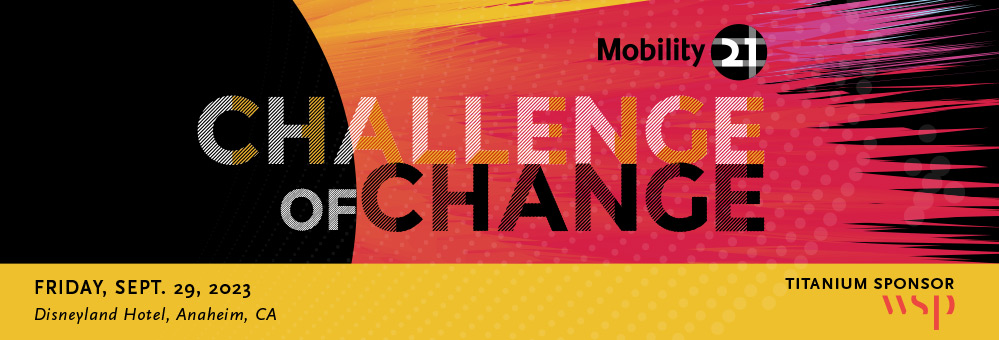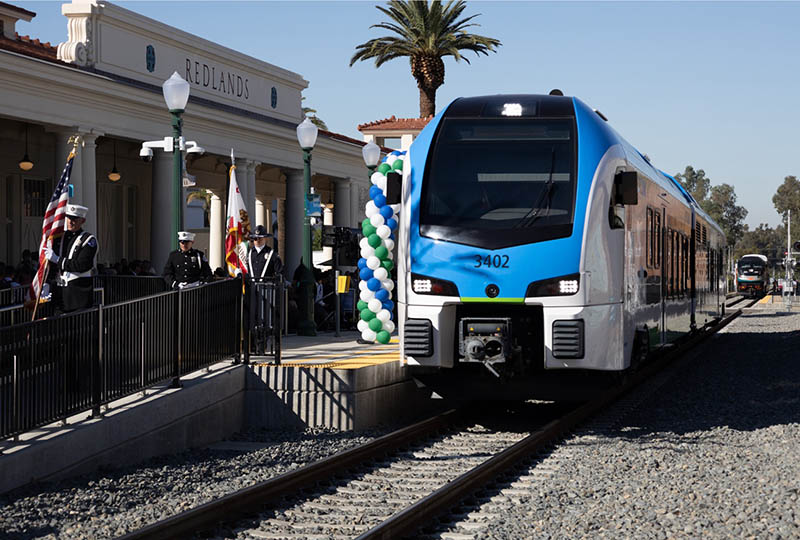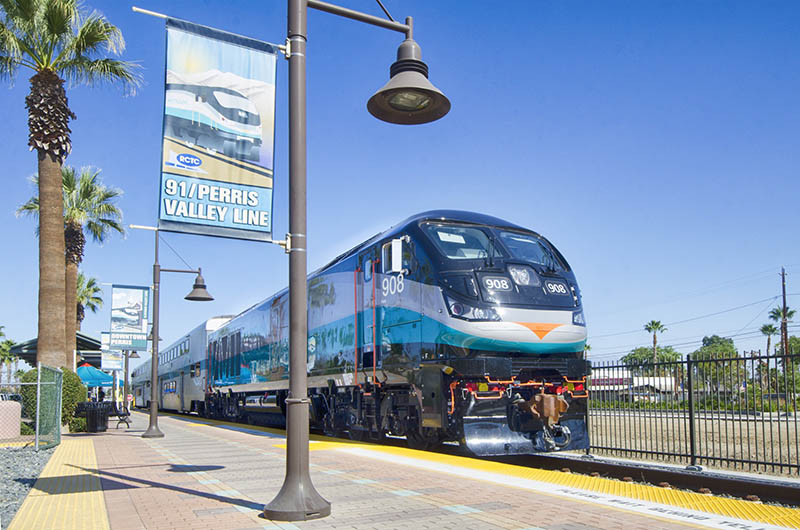2023 Mobility 21 Summit Will Sell Out!
 Sponsorships are selling quickly for the 2023 Mobility 21 Summit on Friday, Sept. 29 at the Disneyland Hotel in Anaheim, Calif. The Summit is the only place where you can mix and mingle with every transportation CEO in Southern California, policy makers and nationally-known transportation experts. Click here to view the sponsorship packages.
Sponsorships are selling quickly for the 2023 Mobility 21 Summit on Friday, Sept. 29 at the Disneyland Hotel in Anaheim, Calif. The Summit is the only place where you can mix and mingle with every transportation CEO in Southern California, policy makers and nationally-known transportation experts. Click here to view the sponsorship packages.
Available Sponsorships:
Titanium – $30,000 (SOLD OUT)
Platinum – $12,000 (8 LEFT)
Gold – $6,500 (21 LEFT)
Copper – $3,500
Bronze – $1,500 (open to registered SBEs, DBEs and non-profits only)
Registration Now Open!
Early bird registration is now open! Join more than 1,000 transportation stakeholders, industry leaders and elected officials at California’s largest one-day transportation event. Hurry, Early Bird registration ends Aug. 11!
Early Bird Registration: $375
Registration after Aug. 11: $495
Student/Military Personnel Registration: $195
Click here to register online!
Reduced Hotel Rate Reservations
Discount hotel rates are available to conference attendees! Click here to reserve your room now. Space is limited and the discount is only available until it’s sold out or Aug. 30.
Mobility 21 Advisory Board Member Spotlight:
David Aguirre
Executive Director
Imperial County Transportation Commission
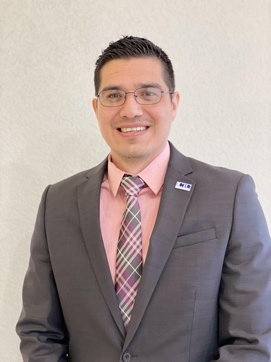 David Aguirre is the Executive Director of the Imperial County Transportation Commission (ICTC), appointed in December 2021. ICTC is the Regional Transportation Planning and Transit Agency for Imperial County, in addition to the administering agency for the Imperial County Local Transportation Authority. Most recently, ICTC, through AB 939, was authorized to administer non-transportation programs. Current non-transportation regional programs administered by ICTC are the Imperial Valley Resource Management Agency (IVRMA) and the Service Authority of Freeway Emergencies (SAFE). David leads a staff of 15 with an annual budget of over 10 million.
David Aguirre is the Executive Director of the Imperial County Transportation Commission (ICTC), appointed in December 2021. ICTC is the Regional Transportation Planning and Transit Agency for Imperial County, in addition to the administering agency for the Imperial County Local Transportation Authority. Most recently, ICTC, through AB 939, was authorized to administer non-transportation programs. Current non-transportation regional programs administered by ICTC are the Imperial Valley Resource Management Agency (IVRMA) and the Service Authority of Freeway Emergencies (SAFE). David leads a staff of 15 with an annual budget of over 10 million.
Prior to his appointment, David was the Transit Program Manager for over 5 years. As Transit Program Manager, David was responsible for various critical ICTC programs such as managing the administration and operation of ICTC various public transit systems, budgetary administration of ICTC and oversight of ICTC’s newly administered programs SAFE and IVRMA. David, with interagency support, is currently leading the efforts to expand the bridge over the All-American canal at the Calexico East Port of Entry as well as the finalization of right of way acquisition and construction efforts for the Calexico Intermodal Transportation Center. ICTC also recently implemented its first Microtransit service in the city of Calexico, which has been well received by the community of Calexico. David coupled with ICTC staff, oversees highway and transit projects, public transit services, and critical regional studies.
David obtained his bachelor’s and master’s degrees in accounting. David is a life-long resident of the Imperial Valley and currently lives in El Centro.
Mobility 21 Advisory Board Member Spotlight:
Theresa Dau-Ngo, AICP
Director, Port Planning
Port of Long Beach
 Theresa Dau-Ngo is Director of Port Planning Division in the Planning and Environmental Affairs Bureau at the Port of Long Beach, California. She began her Port career in March 2013 as Manager of Transportation Development and was appointed into her current role in 2021.
Theresa Dau-Ngo is Director of Port Planning Division in the Planning and Environmental Affairs Bureau at the Port of Long Beach, California. She began her Port career in March 2013 as Manager of Transportation Development and was appointed into her current role in 2021.
As Director of Port Planning Division, she provides leadership and direction to a team that is responsible for diverse planning functions including: maintaining the State-certified Port Master Plan, preparing short and long-range land use planning studies, managing the Port’s Strategic Planning efforts, assessing Port-related economic impacts, evaluating current and future transportation system performance within and outside of the Harbor District, developing funding and policy strategies in support of Port transportation infrastructure, and collaborating with transportation agencies on critical policy development.
Prior to joining the Port, her 18 years in the private sector included serving as a consultant at several infrastructure consulting firms in the Bay Area and Southern California.
Theresa attended the University of Southern California and graduated Magna Cum Laude with a Bachelor of Science Degree in Planning and Development. She went on to earn a Master of Science Degree in Civil and Environmental Engineering, and a Master of City Planning Degree from the University of California, Berkeley.
Her professional affiliations include the Ports and Channel Committee and the Intermodal Freight Transportation Committee of the Transportation Research Board, the Women’s Transportation Seminar (Los Angeles Chapter Board of Directors), Mobility 21 (Advisory Board), the American Institute of Certified Planners and the Transportation Division of the American Planning Association.
Theresa is a member of the Leadership Long Beach Class of 2019, and volunteers her time as a mentor to graduate planning students at USC and formerly at UC Berkeley. She also serves on the Port’s Diversity in Procurement Committee.
Theresa, her husband and three children make their home in Long Beach.
Summit Platinum Sponsor Spotlight:
Automobile Club of Southern California
Auto Club’s Automotive Research Center: Creating a Greener, Safer Future
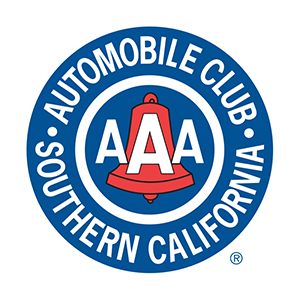 The Automobile Club of Southern California’s Automotive Research Center (ARC) is nationally recognized vehicle research and testing laboratory located in Los Angeles. Established in 1967, the ARC was one of the first emissions labs located in California. Today, the ARC team of engineers and technicians still conduct emissions testing but also look at fuel economy and performance, new in-vehicle technologies, and other industry trends.
The Automobile Club of Southern California’s Automotive Research Center (ARC) is nationally recognized vehicle research and testing laboratory located in Los Angeles. Established in 1967, the ARC was one of the first emissions labs located in California. Today, the ARC team of engineers and technicians still conduct emissions testing but also look at fuel economy and performance, new in-vehicle technologies, and other industry trends.
What’s the ARC up to these days? Check out these examples of how the ARC and AAA are helping to move all travelers into a greener, safer future.
- AAA Car Guide. The ARC’s comprehensive consumer guide, which rates electric vehicles as well as hybrids and high fuel-efficient cars based on criteria such as ride quality, safety and performance.
- Policy Discussions. The ARC works with community and public organizations to host zero-emission vehicle policy discussions that address equitable access to clean transportation.
- EV Consumer Survey. AAA’s updated annually, provides valuable market research based on consumer opinions regarding electric and hybrid vehicles.
- Your Driving Costs. AAA’s online calculator that provides the latest information about the full cost of driving, including vehicle purchase, operation, fuel/energy, maintenance, insurance, and fees and taxes.
- Used EV Car Buyers Guide. AAA’s guide geared towards consumers attracted to the idea of going electric – but worry they will face a steep price tag for a new EV.
- AAA TripTik. AAA’s route planning information for travelers, including a customized map of publicly accessible charging stations throughout the nation.
Delivered through collaborative partnerships, Redlands Passenger Rail Project bridges the gap between idea and achievement.
Summit Platinum Sponsor Spotlight:
HDR
 The Arrow connects San Bernardino and Redlands offering travelers a new option to a variety of destinations. Delivering the Arrow service required a masterplan encompassing several projects like the San Bernardino Transit Center, the First Mile, Arrow Maintenance Facility. The “Arrow” transit service is the culmination of a thirty-year planning process spearheaded by the SBCTA in partnership with Metrolink and the Cities of Redlands and San Bernardino. Now operational, Arrow began service in October 2022 along with extending Metrolink service to Redlands. SBCTA worked with the stakeholders along the 9-mile corridor to weave the required infrastructure into the communities. HDR is proud to have partnered with the stakeholders on the program since its inception.
The Arrow connects San Bernardino and Redlands offering travelers a new option to a variety of destinations. Delivering the Arrow service required a masterplan encompassing several projects like the San Bernardino Transit Center, the First Mile, Arrow Maintenance Facility. The “Arrow” transit service is the culmination of a thirty-year planning process spearheaded by the SBCTA in partnership with Metrolink and the Cities of Redlands and San Bernardino. Now operational, Arrow began service in October 2022 along with extending Metrolink service to Redlands. SBCTA worked with the stakeholders along the 9-mile corridor to weave the required infrastructure into the communities. HDR is proud to have partnered with the stakeholders on the program since its inception.
Diesel Multiple Units (DMUs) currently provide primary service for the project. The DMUs are powered by a low-emission, clean diesel engine which are smaller, quieter, more efficient, and cheaper to operate than standard locomotive coaches like Metrolink. DMUs work inter-operably with Metrolink and freight services allowing for all to use the same track. In addition, Metrolink provides round trip express service from Redlands-to-Los Angeles each morning with return trip each evening.
One example of overcoming challenges was the team’s ability to weave the Arrow transit service into the communities through various enhancements like quiet zones and preservation of resources including citrus groves and trees at existing park sites. This helped maintain Redland’s urban forest, and integration of historic properties including the historic Redlands Station. RPRP reflects the latest in technical and engineering innovation with an advanced signaling system that minimizes gate times and a positive train control (PTC) to maximize rider safety. Another challenge was obtaining the $360M in state, federal and local funding.
It is worth noting that nearly 50 women played key roles in this success. Together, we are bridging the gap between idea and achievement for our community.
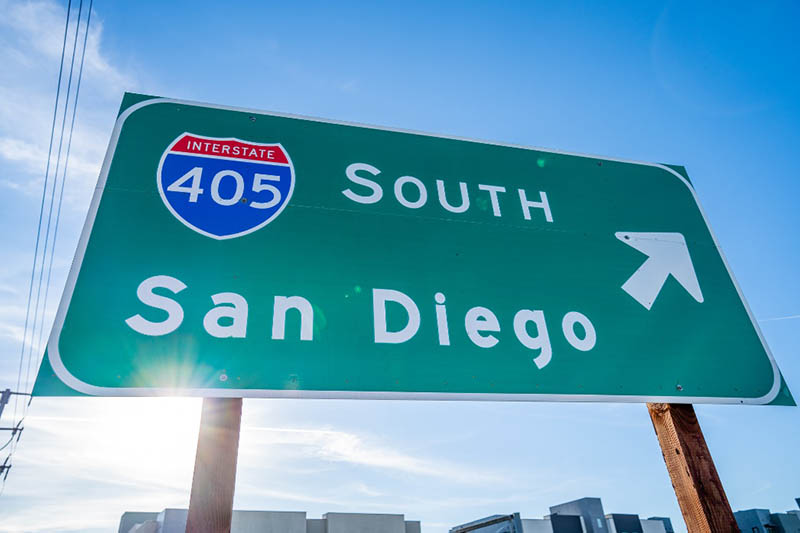
Mott MacDonald is Program Manager for the ambitious I-405 Improvement Project.
Summit Platinum Sponsor Spotlight:
Mott MacDonald
Taking California Transportation Into the Future
 The I-405 Improvement Project is improving 16 miles of the San Diego Freeway between State Route 73 and Interstate 605. The highway widening project includes new express lanes, bridges, and railroad crossings, and reconfigured ramps and expressways.
The I-405 Improvement Project is improving 16 miles of the San Diego Freeway between State Route 73 and Interstate 605. The highway widening project includes new express lanes, bridges, and railroad crossings, and reconfigured ramps and expressways.
The result? Shorter commutes for 370,000 drivers in Southern California.
As Project Manager, we’re proud to have played a key role in delivering this groundbreaking transportation solution for the Orange County Transportation Authority. According to OCTA, the project will create 40,000 jobs and enable Orange County to keep pace with expected growth in jobs, housing, and population.
Mott MacDonald is a global engineering, management, and development firm, with over 60 offices and 2,300 staff in North America. Our team members are experts in all aspects of roadway, drainage, and transportation infrastructure construction and design.
Whether your project encompasses freeways, highways, complex interchanges, or bridges that carry roadways, railways, or pedestrian traffic over natural or human-made features, the experienced advisors of Mott MacDonald can offer elegant solutions for the most intricate problems.
To find out more, write us at americas@mottmac.com, call 800.832.3272, or visit mottmac.com.
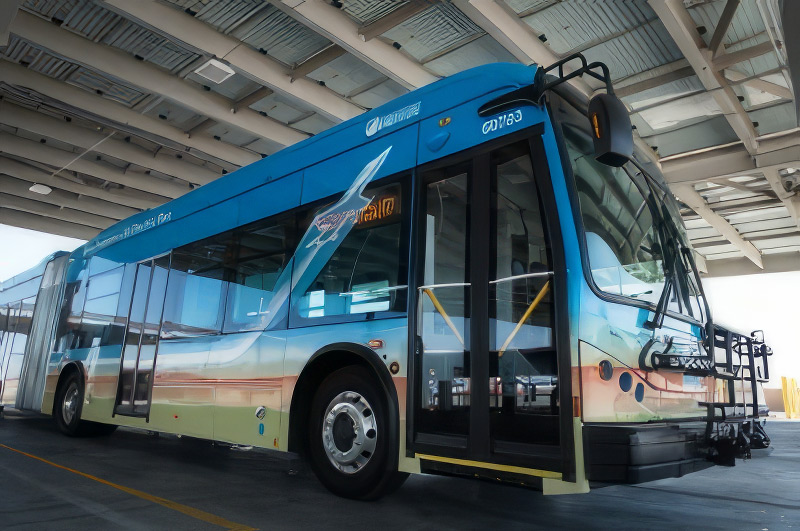
SCE’s Charge Ready Transport program helps fleet managers transition to electric vehicles.
Summit Platinum Sponsor Spotlight:
Southern California Edison
Electrify Your Fleet with SCE’s Charge Ready Transport Program
 Helping California meet its climate and clean energy goals means driving cleaner cars, trucks, and buses. At Southern California Edison (SCE), we’re working hard to make that a reality. We’re building a smarter, cleaner electric grid. We’re installing more electric chargers for all types of vehicles. And we’re offering incentives to keep costs down – making sure no community is left behind.
Helping California meet its climate and clean energy goals means driving cleaner cars, trucks, and buses. At Southern California Edison (SCE), we’re working hard to make that a reality. We’re building a smarter, cleaner electric grid. We’re installing more electric chargers for all types of vehicles. And we’re offering incentives to keep costs down – making sure no community is left behind.
SCE’s Charge Ready Transport Program offers low-to no-cost electrical system upgrades to support the installation of electric vehicle (EV) charging equipment for qualifying vehicles. This program provides a unique opportunity for fleet operators choosing to acquire EVs by providing support and reducing the costs associated with the necessary charging infrastructure.
When a customer is approved to participate in the program, SCE will design, construct, and install the necessary infrastructure on both the utility-side and customer-side of the electric meter. If the customer prefers, they can perform the customer-side of the meter electrical work and receive a rebate. Additional rebates are available to school districts, transit agencies, and eligible companies within disadvantaged communities.
SCE also offers advisory services to support customers early in the electrification planning phase. Our expert representatives are standing by.
To learn more, please visit www.sce.com/evbusiness
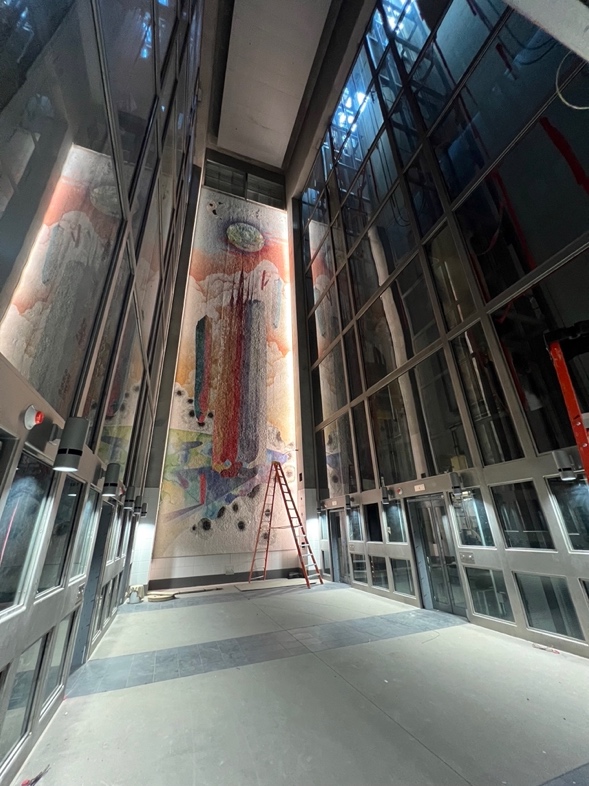
Regional Connector Project
Summit Platinum Sponsor Spotlight:
Skanska
![]() Skanska is committed to building for a better society. The projects that we help build make Southern California a better place to live, work and play. Whether it’s improving the movement of goods and materials across our region or providing better, safer, and more sustainable travel options for Californians, our efforts serve Skanska’s core values.
Skanska is committed to building for a better society. The projects that we help build make Southern California a better place to live, work and play. Whether it’s improving the movement of goods and materials across our region or providing better, safer, and more sustainable travel options for Californians, our efforts serve Skanska’s core values.
We are proud to support Mobility 21 in their mission to expand transportation options and create solutions that advance mobility throughout Southern California. Skanska shares Mobility 21’s commitment to the region and will continue to play our role in helping to transform the Southern California transportation landscape for the citizens, businesses and visitors that rely on it.

SR-60 Truck Climbing Lanes
Within the community, Skanska strives to create opportunities for our employees by advancing a culture of inclusion and embracing the diverse backgrounds, talents, and perspectives that our people bring to work each day. Our subcontracting programs provide opportunities for women, minority, small and veteran disadvantaged businesses; and we work directly with them to provide training, mentoring, and hands-on support. Our recent and active Southern California projects have awarded over $1 Billion in contracts to disadvantaged business enterprises.
Thank you, Mobility 21, for your dedication and continued advocacy in support of positive regional growth for Southern California.
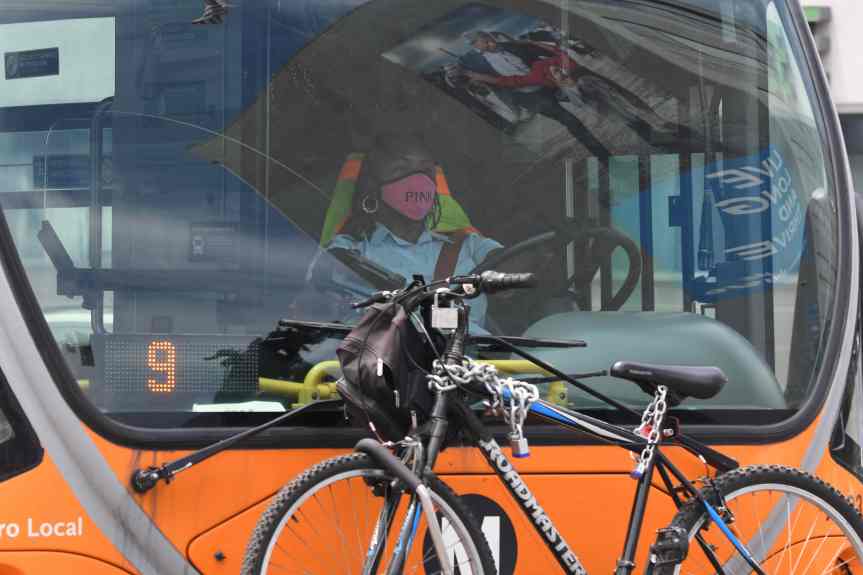
It goes without saying that our buses and trains don’t run themselves — we rely on thousands of well-trained and professional operators to keep our system going. Photo by LA Metro.
1,000 New Transit Operators Help Metro Restore Bus Service, Reduce Cancellations
Metro is happy to announce that they’ve hired, trained, and deployed the 1,000th new Metro transit operator since February 2022, when Metro temporarily cut back bus service by 10% in the face of the Omicron Variant and a steep transit operator shortage.
After making those temporary cuts, Metro got to work on a plan to restore bus service quickly by recruiting hundreds of new operators to our ranks. The hiring surge enabled us to restore those cuts and return to our full pre-pandemic level of Metro bus service in December 2022. The hiring surge also helped us to drive down weekday service cancellation rates to between 1-3% as of April 2023, and increase bus ridership by 13% in the first quarter of 2023. Our hiring and training of new bus operators continues so that we keep our operator numbers complete to maintain reliable service.
“We’d like to thank our loyal Metro bus riders, who bore with us throughout 2022 as we worked to stabilize our service, recruit more operators, and reduce service cancellations,” said Stephanie Wiggins, CEO of Metro. “We’d also like to thank the dedicated team of Metro professionals who worked to recruit, train, deploy, and welcome so many new transit operators to the Metro family, and the team who led us through all the changes to bus schedules and deployments throughout the year, and the Sheet Metal, Air, Rail, and Transportation (SMART) Union for their partnership. Also, a big shout out to our bus operators who have worked long hours and many extra days to maximize the service available each day for our riders.”
Flashback: January 2022
Bus riders account for nearly 80% of systemwide ridership and things were not looking good for the Metro bus system in late 2021. Weekday cancellation rates had surged to over 15% and the brunt of those cancellations were occurring in South LA and the Gateway Cities, communities where many people rely on transit service. Transit operators were calling out at high rates as the Omicron Variant caused coronavirus cases countywide to surge to the highest numbers recorded during the pandemic. At one point, Metro had less than 3,100 bus operators available to run bus service around the clock with a daily need to pull out over 1,600 buses. The only way we were able to run the system was to call more than 800 operators in on their days off to cover needed shifts. What’s more, operator hiring had stalled. Our starting wage for operators at the time was $17.75/hr., and the high risk of catching the virus in a public facing role combined with rising inflation likely kept some potential recruits from joining our ranks.
In January 2022, the CEO announced the need to temporarily cut 700,000 annualized revenue service hours (RSH) from the bus system to enable us to stabilize service while we recruited and trained more new bus operators. Recognizing that not all neighborhoods and regions of the county were affected by cancellations equally, Metro informed the Board that the temporary cuts would be made strategically throughout the network with an equity lens using the NextGen framework. This allowed us to implement the cuts throughout the region by making minor adjustments in scheduled levels of service, while retaining additional trips on high cancellation lines in equity focus communities (EFCs) where transit ridership was highest.
Though Metro sought to minimize the impact of the temporary service cut on our riders, we knew that any service cut would make life more difficult for our bus patrons, many of whom rely exclusively on Metro for their transportation. We needed to restore that service as quickly as possible. That said, we also knew that it’d be a bad idea to restore service before we were ready. There’s nothing worse than promising something that you can’t deliver, so we decided to add back service we’d cut in smaller chunks, to ensure we could deliver on our promises. Before each chunk of service was added back to the system:
- The number of active COVID cases needed to be below 30 per week,
- The rate of service cancellation (before adding any service back) needed to be approaching its historical average of 2%,
- The number of shifts covered by operators working on their days off (before adding any service back) needed to be trending down, ideally below 200 per week, and
- We need to have hired and trained enough operators to restore that chunk of service.
We had our work cut out for us.
Recruitment Efforts Begin in Earnest
Transit operators are the beating heart of Metro. These highly trained professionals operate enormous equipment through the busiest parts of our region, dealing with often stressful traffic jams and the everyday hustle and bustle of LA County. Being a transit operator is a tough job, but in return, Metro offers good, steady pay, great benefits, and excellent pathways for career growth.
By February 2022, we estimated that we needed to, at a minimum, hire, train, and deploy 800 full time bus and rail operators to restore the service we had just cut. 800 was the baseline goal, but we knew we needed to hire many more than that to account for everyday callouts, long-term leave, time off, and expected retirements. We also knew that the training to become a transit operator is extensive, and not everyone would pass our rigorous training course, which is designed to keep our riders, employees, and the public safe. We had our work cut out for us, and the first thing we worked on was recruitment.
Starting pay for Metro transit operators in January 2022 was $17.75/hr. That pay level was failing to attract enough people to the profession, so the CEO authorized a temporary raise starting pay to $19.12/hr. while Metro and the SMART Union negotiated on a broader pay and benefit package. We also offered a $3,000 signing bonus to new operators, which was available to them after they successfully completed the hiring and training process. We partnered with area Community Colleges to hold large hiring fairs for bus operators, and streamlined our hiring process so that conditional offers of employment could be made in as little as one day. We also expanded operator training classes from 25 in February to 85 in March 2022, and 125 in June 2022. While we made many conditional offers of employment at those job fairs, not everyone was able to make it to and through our rigorous 8-week safety and operations training. By June 2022, we had hired, trained, and deployed 150 new transit operators and reduced ordered call backs by about half – but we still needed to hire, train, and deploy many more operators to fully restore Metro service.
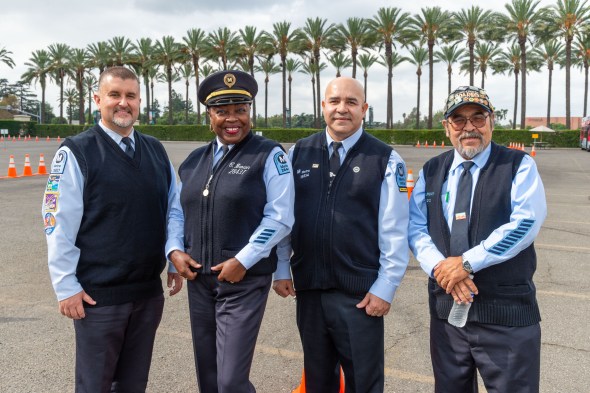
Many of our bus operators have been with the agency for many years because of the pay and good benefits. Photo by LA Metro.
Raising Starting Pay & Retention Bonuses
After successful contract negotiations with the SMART Union, Metro was able to raise starting pay to $23.00 for all operators in August 2022. The agreement also changed work rules which enabled us to hire full-time bus operators. Before this agreement, new bus operators were required to start in part-time positions until full-time positions became available. After the agreement, Metro was able to extend full-time positions to new recruits and move more part-time operators to full time, allowing us to staff up more quickly and provide new staff the full-time work most were looking for. This helps with retention.
“The agreement between the SMART Union and Metro was truly a history maker for our members and the agency,” said John M. Ellis, General Chairman of SMART. “It sent a clear message to transit operators that they are valued and appreciated, and I’m glad that it was instrumental in retaining existing operators at Metro and recruiting new people to the profession.”
The SMART Union and Metro also agreed to give one-time retention bonuses of up to $2,500 to all operators who worked tirelessly throughout the pandemic. What’s more, we made it easier to climb the compensation ladder upon satisfactory performance. The new contract was a big boon to operator hiring, recruitment, and retention efforts.
Bienvenidos a Metro
Recognizing that applicants’ English fluency could be a barrier to their employment at Metro, in March 2022, the Metro Board endorsed a plan to amplify Metro’s efforts to recruit bus and rail operators that speak Spanish as their first language through the Bienvenidos a Metro program. The program has led to the hiring, training, and deployment of more than 100 new bilingual Metro transit operators.
Through the Bienvenidos a Metro program, we not only worked to translate our application and training materials, but we also partnered with the LA Unified School District’s Adult Education program to recruit English as a Second Language (ESL) students to the profession. We also expanded our recruitment and outreach to Spanish speaking communities through a variety of community based and advertising strategies.
The Bienvenidos a Metro program not only helps us to expand our applicant pool but having bilingual operators is also helpful to our Spanish speaking customers. According to our 2022 Customer Experience survey, about 42% of our riders speak Spanish at home.
Looking Forward
While Metro’s bus service has now been fully restored to its pre-pandemic levels and cancellation rates are near their historic averages, we aren’t yet done. We still need to fill more positions, we still are calling in too many people on their days off to cover shifts, and we need to keep up the pace of hiring to keep up with retirements. But there’s no doubt – the collaborative and coordinated efforts across the agency to recruit, hire, train, and deploy transit operators across our system have been a great success so far and have definitely improved service for our riders.
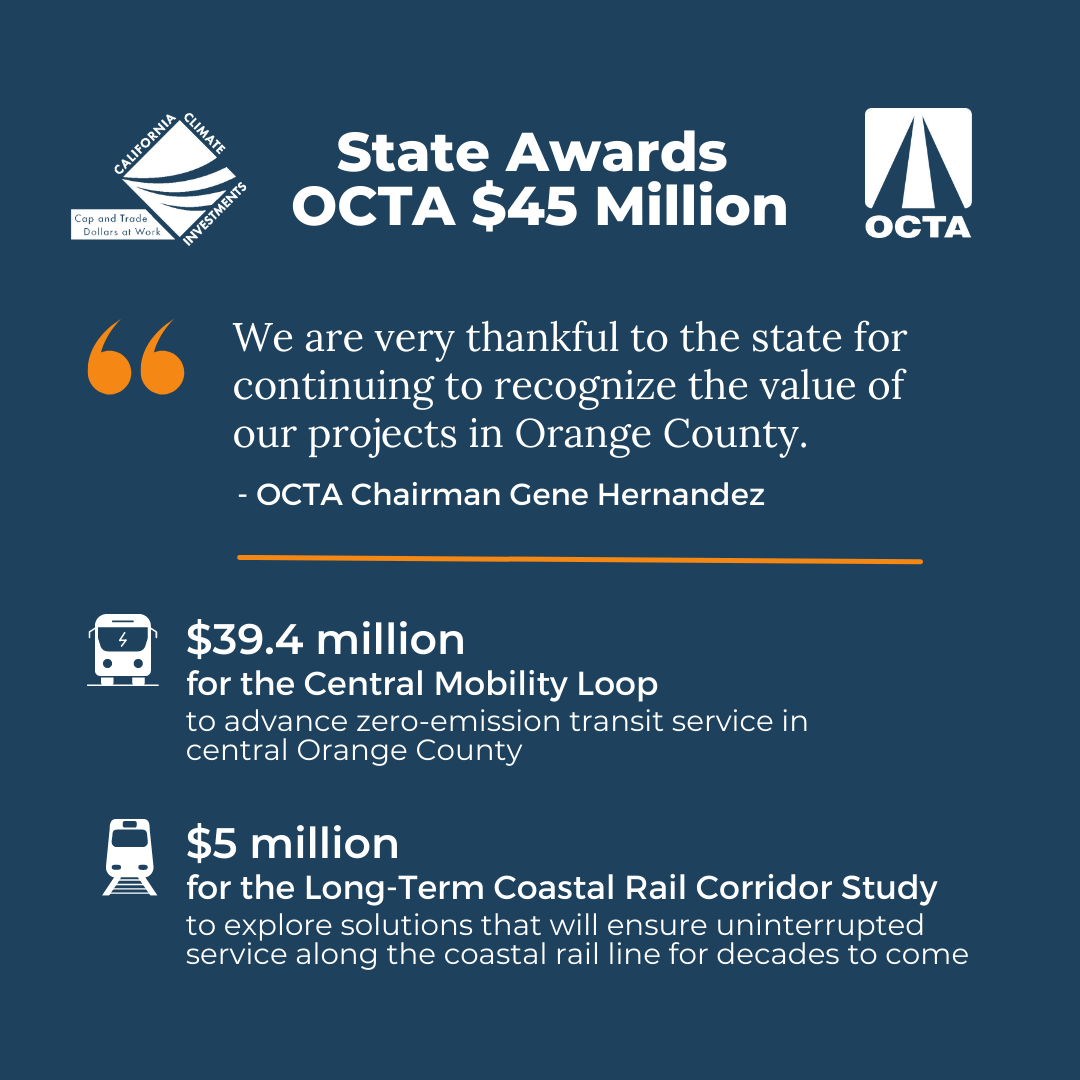
The funds from the state’s Transit and Intercity Rail Capital Program will help central Orange County transit and help further study long-term coastal-rail solutions
OCTA Awarded $45 Million in State Funds to Invest in Orange County Rail, Transit Projects
The Orange County Transportation Authority has been awarded nearly $45 million in state funds for two projects that will help keep the county moving safely and efficiently by bus and rail, improving air quality in the process.
OCTA learned in late April that it has been awarded the funds by the California State Transportation Agency (CalSTA) through the Transit and Intercity Rail Capital Program (TIRCP). In all, the state awarded funding to 28 projects across California totaling approximately $690 million.
“We are very thankful to the state for continuing to recognize the value of our projects in Orange County, which will continue to enhance the ability of our residents, workers and visitors to more efficiently travel to their destinations by using public transit,” said OCTA Chairman Gene Hernandez, also the mayor of Yorba Linda.
The funds awarded to OCTA will help with two projects – one focused on increasing mobility options in central Orange County, where public transit options are essential, and the other focused on finding long-term solutions to ensure that the vital coastal rail line can continue to operate for decades to come.
“Our successful funding applications were possible through the strong support of Orange County’s state and federal elected officials, our city partners and neighboring transportation agencies,” said OCTA CEO Darrell E. Johnson. “We very much appreciate their collaboration and look forward to continued partnership as we work to advance these important transportation projects.”
The state funds awarded to OCTA:
- $39.4 million toward the Central Mobility Loop. That includes:
- Purchasing 33 zero-emission buses and associated infrastructure for expanded service.
- Replacing 10 gasoline-powered paratransit vehicles with zero-emission vehicles, leveraging a recent federal grant.
- Implementing transit signal priority at 60 traffic signals and to all buses traveling along 12 miles of the Bravo! 543 route, which will allow buses to move through intersections with more consistent speeds. This builds on OCTA’s 94 signal-timing projects throughout Orange County that has resulted in 3,285 signals being synchronized along 838 miles of streets.
- Installing new bike storage at the Santa Ana Regional Transportation Center, as well as fast-charging stations at SARTC and the Fullerton Transportation Center.
- These funds are in addition to a previous TIRCP award of $150 million to help fund the completion of the OC Streetcar.
- $5 million toward the Coastal Rail Corridor Relocation Study.
- This study is part of OCTA’s recently adopted framework to work with partners to find longer-term solutions for the coastal rail line, a critical link that is vital for passengers, freight and the military along the second busiest rail corridor in the nation.
- The study will look at long-term options for approximately 11 miles of the Los Angeles – San Diego – San Luis Obispo (LOSSSAN) rail corridor through south Orange County.
- OCTA recently completed emergency work shoring up the track and adjacent hillside along a 700-foot stretch of the rail line in south San Clemente.
- The OCTA led study, with local, state and federal partners, will look at long-term solutions, including potential realignment of the rail line near the coast to protect it for generations to come.
Since 2015, the state’s TIRCP has provided more than $9.8 billion in funding to 125 projects statewide, funded primarily from Senate Bill 1, the Road Repair and Accountability Act of 2017, and through California Climate Investments, a statewide initiative that puts billions of Cap-and-Trade dollars to work reducing greenhouse gas emission, strengthening the economy, and improving public health and the environment – particularly in disadvantaged communities.
In all this round, the 28 projects are estimated to take out more than 2 million metric tons of air pollutants, helping California breathe easier.
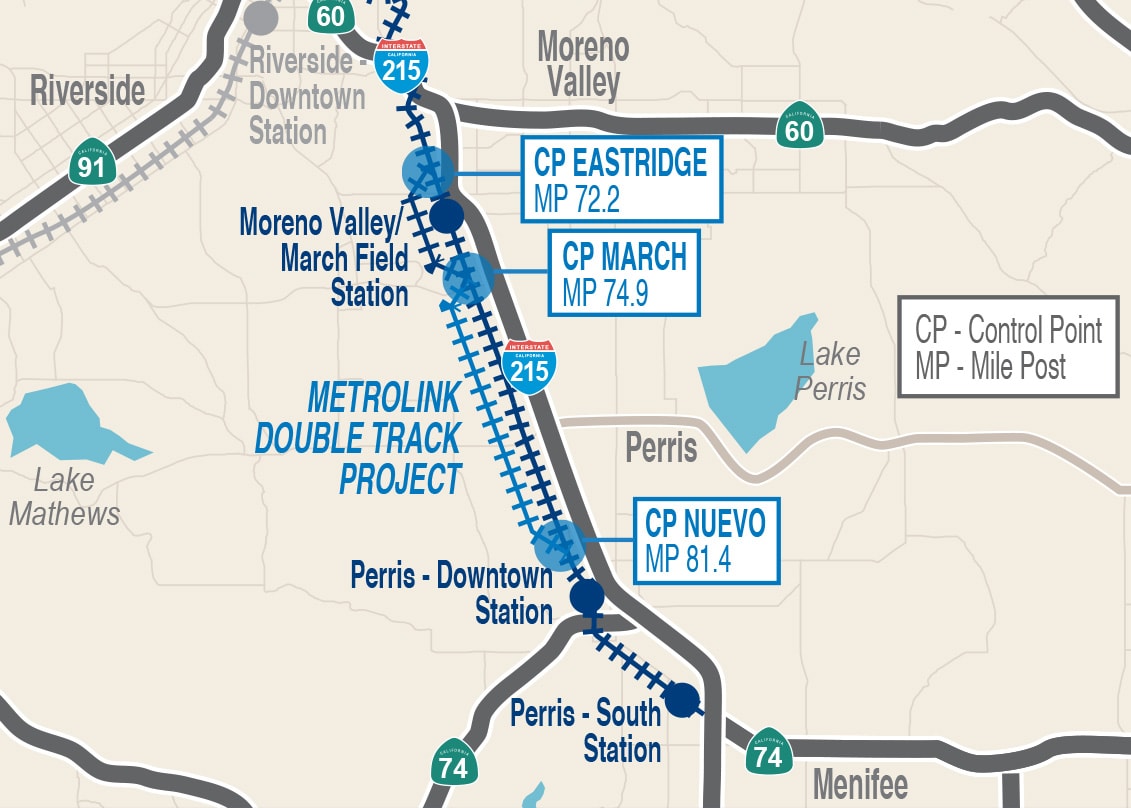
RCTC and Metrolink Awarded $15.5 million for Perris Valley Line Double-Track Project
The 91/Perris Valley Line (91/PVL) will see service improvements thanks to a $15.5 million award for the Metrolink Double-Track Project announced by Governor Gavin Newsom in April. The award announcement follows a joint application by RCTC and Metrolink to expand passenger rail service on the 91/PVL and reduce congestion along the heavily congested I-215.
The project will improve 6.5 miles of existing freight railroad track to meet standards for Metrolink passenger rail service. The historic freight tracks are rated for much slower speeds than passenger trains require. The upgrades will include reconstructing existing track and the addition of a second set of tracks between the Moreno Valley/March Field Station and just north of the Perris-Downtown Station along the 91/PVL. These improvements will allow for expanded Metrolink service in the area and safely accommodate local freight trains serving freight rail shippers along the corridor.
The improved tracks will offer improved reliability, increase service frequency, and keep on-time performance. Furthermore, the project expands transportation options by offering an alternate to driving, reducing air pollution, and serving underserved communities. Through these improvements, Metrolink will be closer to offering service every 30 minutes, consistent with the Southern California Optimized Rail Expansion (SCORE) Program and California State Rail Plan.
The project will connect to the Moreno Valley/March Field Station Improvements Project, which began construction in October 2022. Construction for the Metrolink Double-Track Project could begin in mid-2024.
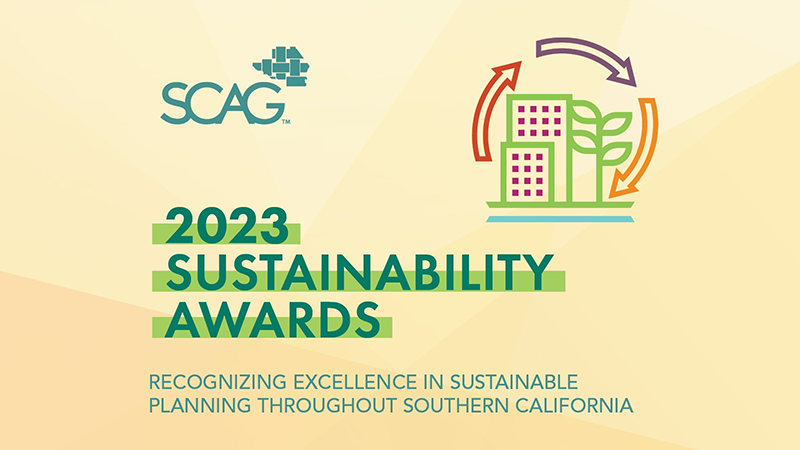
The Southern California Association of Governments
Honors Seven Innovative Projects With Its
2023 Sustainability Awards
Seven innovative projects across the six-county region were honored by the Southern California Association of Governments (SCAG) at the 2023 Sustainability Awards ceremony at SCAG’s Regional Conference and General Assembly on May 4 in Palm Desert. The awards recognize excellence and innovation in planning, land use and transportation to improve mobility, livability, prosperity and sustainability.
The 2023 Sustainability Award winners are:
- Outstanding Achievement in Sustainability: Ventura County’s Agricultural Worker Housing Ordinance.
- Carmen Ramirez Award for Equity: City of Rialto and the Inland Empire Utility Agency’s Recycled Water Collaboration.
- Plan, Policy and Programs Award: Envision San Jacinto
- Clean Cities: Alternative Fuels & Infrastructure Award: City of San Bernardino Fleet Project
- Active, Healthy and Safe Communities Award: Lynwood Urban Bike Trail
- Green Region Initiative Award: Pacoima Cool Community Project
- Housing Innovation Award: Santa Ana Legacy Square
To learn more about these projects, visit scag.ca.gov/past-sustainability-program-awards-recipients.
Metrolink to Receive Critical CalSTA Funds for
Locomotive and Infrastructure Projects
Earlier this month, Governor Gavin Newsom announced a $10 million award for Metrolink’s Locomotive Fuel Efficiency and Maintenance Modernization Project, along with an additional $15.5 million following a joint application with the Riverside County Transportation Commission (RCTC) for a double-track project along Metrolink’s 91/Perris Valley Line between the cities of Moreno Valley and Perris.
The funding awards come from the Transit and Intercity Rail Capital Program (TIRCP), administered by California State Transportation Agency (CalSTA), which improves and expands public transportation throughout California.
“Governor Newsom, along with CalSTA executive leadership, continues to prioritize investing in public transportation projects that shift away from fossil fuels, while making passenger rail more customer friendly,” Metrolink CEO Darren Kettle said. “These commitments are essential toward Metrolink’s ongoing mission of providing reliable, safe, affordable and environmentally sustainable transportation for everyone and we appreciate the state’s continued support in making that possible.”
The Fuel Efficiency and Maintenance Modernization Project will reduce Metrolink’s operating costs by combining fuel reduction and innovative maintenance strategies using remote monitoring, real-time diagnostics, and operator training and coaching. Metrolink could see potential fuel reduction rates between eight and 20 percent. A savings of just 8% could result in an annual fuel cost savings of $2.6 million. This fuel efficiency project is key to Metrolink’s strategy of reducing emissions and lowering agency costs.
The Metrolink Double Track Project: Moreno Valley to Perris will reconstruct existing track and create a second main line that will better accommodate Metrolink service traveling at speeds up to 79 mph, while also safely accommodating local freight train service along the corridor through the cities of Perris and Moreno Valley, as well as unincorporated areas of Riverside County.
Once completed, the improved 91/Perris Valley Line track will offer an even better alternative to driving and help relieve traffic congestion along Interstate 215 for Riverside County residents. The project will also increase access to jobs and education in this traditionally underserved area, reduce air pollution, and help Metrolink achieve its goal of providing bidirectional service every 30 minutes.
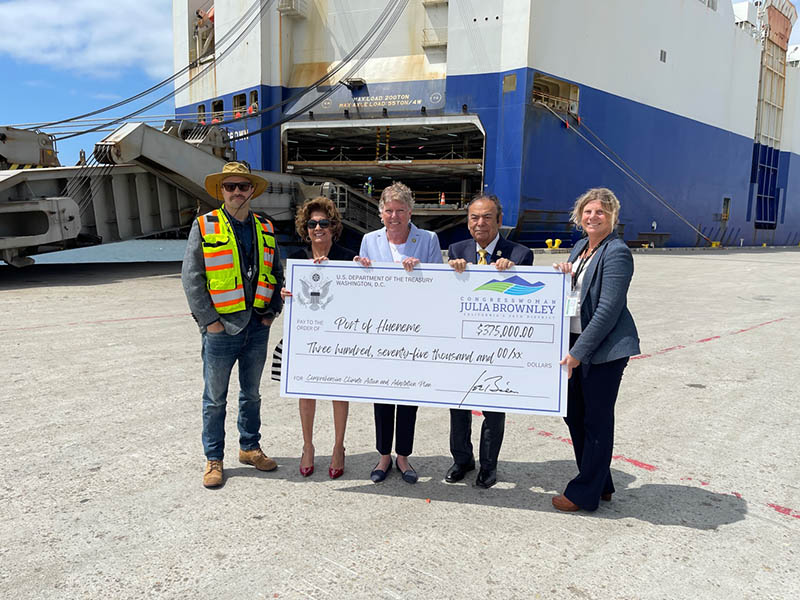
Recognition of federal funding support for the Port’s local environmental efforts. (Left to right) Giles Pettifor, Environmental Manager; Celina Zacarias, Vice President, Oxnard Harbor Commissioner; Congresswoman Julia Brownley; Jess Herrera, President, Oxnard Harbor Commissioner; and Kristin Decas, CEO & Port Director.
Congresswoman Julia Brownley Delivers $375,000 to the Port of Hueneme’s Environmental Initiative
Congresswoman Julia Brownley (CA-26) visited the Port of Hueneme to deliver a check in the amount of $375,000 in support of the Port of Hueneme’s Reducing Emissions, Supporting Health (PHRESH) Plan that will assess and address emissions, air quality requirements and goals, as well as look at future growth scenarios, emission control strategies, community involvement, strategy funding, implementation, and monitoring.
“The Port of Hueneme appreciates the continued support of Congresswoman Julia Brownley’s office in this important climate action and adaptation plan effort to help secure much needed funding for our environmental initiatives,” said Oxnard Harbor Commissioner President, Jess Herrera.
PHRESH would be developed in coordination with Ventura County Air Pollution Control District that includes joint work on goal setting and strategy implementation and funding assessments. The type of proactive comprehensive climate action and adaptation plan between and Port and an air quality regulatory agency would be the first of its kind in California.
The Port of Hueneme is an instrumental and thriving job engine in Ventura County. Over the years, we have seen the expansion and growth, while the Port remains a global leader in environmental sustainability efforts for cargo movement and operations,” said Congresswoman Julia Brownley. “These federal resources will support the Port’s bold initiatives to address the climate crisis and aid in the development of a comprehensive climate action and adaptation plan for emission reductions and future zero-emission operations. Addressing the climate crisis is a collective objective, and I am committed to continuing to work with the Port of Hueneme to ensure that our region benefits from the tremendous opportunities for climate-smart economic growth and job creation that clean energy development will produce.
The Port looks forward to continued work with Rep. Brownley’s office and remains appreciative of her continued efforts to support federal funding for infrastructure, environmental initiatives, workforce development and economic growth at the only deep-water port located in Ventura County.
Kristin Decas, CEO & Port Director said: “Congresswoman Brownley’s office continues to be a steadfast champion for the Port of Hueneme/Oxnard Harbor District as well as the residents of Ventura County. Her support is vital to the Port’s success and our community wins every time we get much needed federal funding for critical Port projects.”

